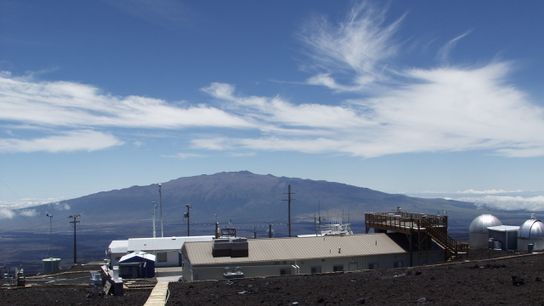The bad news? I was wrong. The good news? Most other people were too.
A few weeks ago, I attended a virtual press briefing along with our wonderful Producer Shannon to listen to, among others, Dr. Michael Mann of Penn State, who shared a very important piece of climate science that went unnoticed by the media from the first part of the 6th Intergovernmental Panel on Climate Change report.
Previous wisdom, which I had repeated in several episodes of The Sweaty Penguin, was that if and when humans cut greenhouse gas emissions to zero, the planet will continue to warm for several decades. The rationale is that greenhouse gasses, and particularly carbon dioxide, live in the atmosphere for sometimes over a century. While in the atmosphere, they’re continuing to absorb solar radiation and warm the planet. It would not be until these gasses live out their entire life that the climate would start to stabilize, let alone revert back to that of preindustrial times. That meant worsening natural disasters, worsening sea level rise, worsening food and water shortages, worsening everything for decades after we have “solved climate change.” I was worried this phenomenon would, in the future, leave our descendants casting doubt over all the work done to that point to protect the climate. I was hammering this point home as much as possible in hopes that when the time comes, people would understand this aspect of how the greenhouse effect works.
To my surprise, that actually isn’t true! Dr. Mann’s research has found that while this warming effect from greenhouse gasses still living in the atmosphere is in play, so too is an opposing cooling effect from oceans and other carbon sinks sucking carbon out of the atmosphere and storing it away. These two forces ultimately cancel each other out according to Dr. Mann, allowing the climate to stabilize in just a few years—again, this being after humans have cut greenhouse gas emissions to zero. Dr. Mann’s calculations are thorough, and do account for the fact that these carbon sinks are degrading due to climate change.
In a sense, this research does come with a grain of salt. When an ocean absorbs carbon, it becomes more acidic, which can cause coral bleaching, prevent shellfish from forming shells, and a long list of other consequences. And on top of that, this actually requires getting emissions to zero. Obviously that’s a worthy pursuit, but it is no easy task—even the most optimistic estimates look to 2050 as a target.
When Dr. Mann presented these findings, I felt a sense of worry from many of the climate communicators listening. From reading the Zoom chat, it seemed people were concerned that this was the sort of “good news” that would devalue climate action, or reduce urgency, or lead people to be complacent.
First off, even if that were the case, I find it extremely frustrating when anyone withholds the nuance of a climate issue, whether the motivation is to promote climate action or to block it. I have always felt environmentalists have the facts on their side, and straying from the facts (which I have seen happen way too often) merely makes them an unreliable messenger.
But in this instance, I feel strongly that Dr. Mann’s research should get people excited about mitigating climate change. There’s now a light at the end of the tunnel. Yes, some damage is locked in. Yes, we would still have to adapt to whatever level of warming we reach. But if we pick up the pace and we cut greenhouse gas emissions to zero, then global warming is pretty much over. We can shift our focus to adaptation and—if I might be so bold—restoration, knowing that things will get better, not worse. The climate actually could stabilize in my lifetime.
Climate change really does lend itself to doom-and-gloom, which is all the more reason why it’s worth celebrating the good news. Being happy isn’t being complacent—rather, it’s the exact rejuvenation we need to avoid burnout and stay motivated. Thank you to Dr. Mann for taking the time to make us climate communicators aware of this misconception, and for making climate action a whole lot more exciting.
